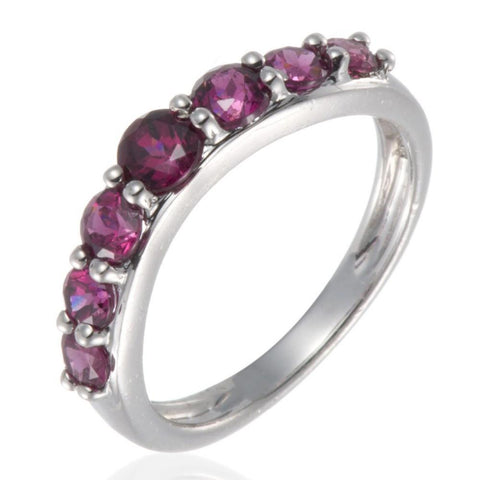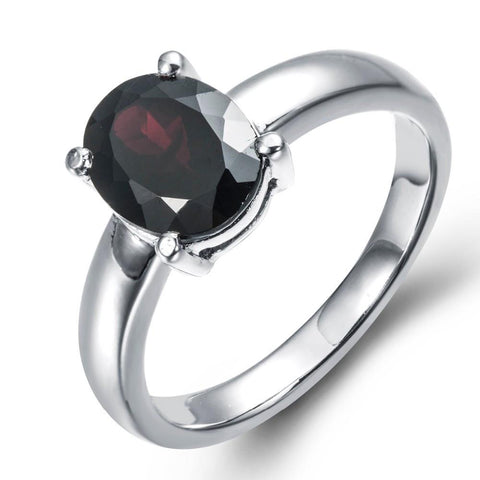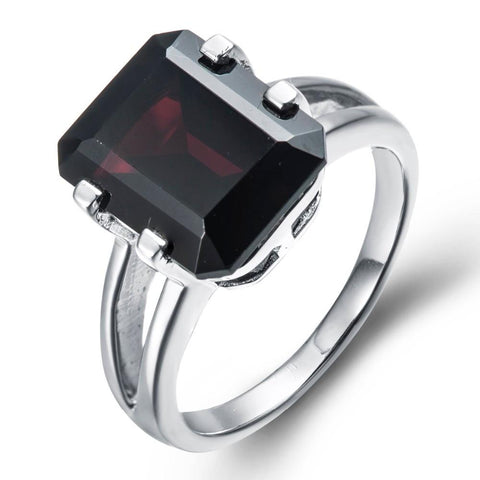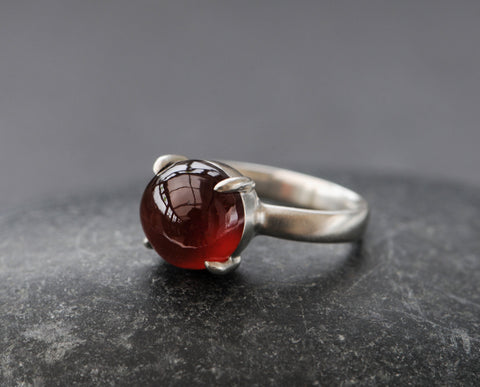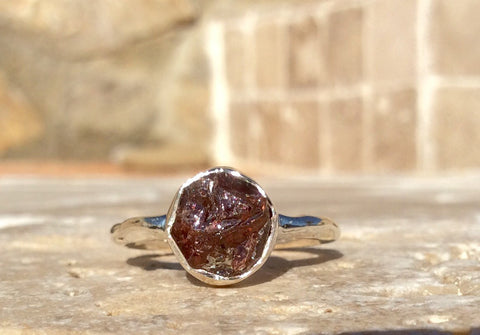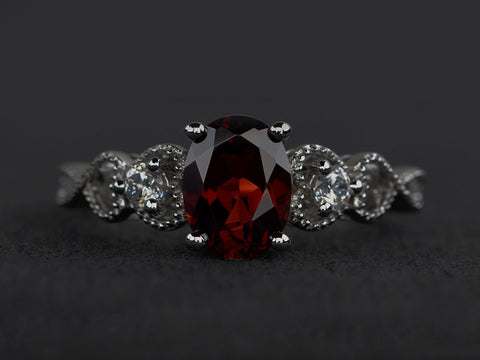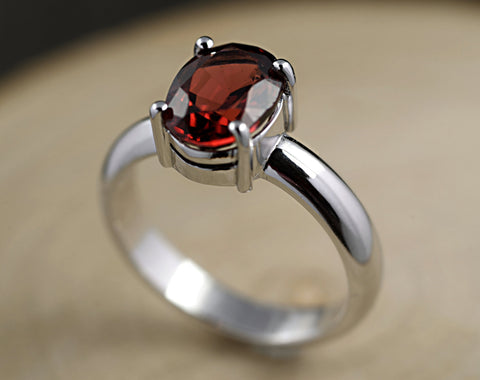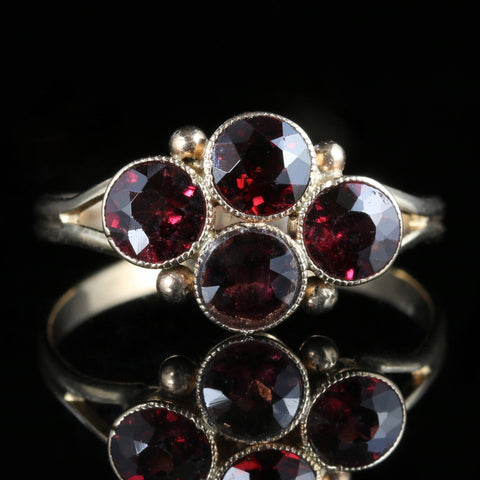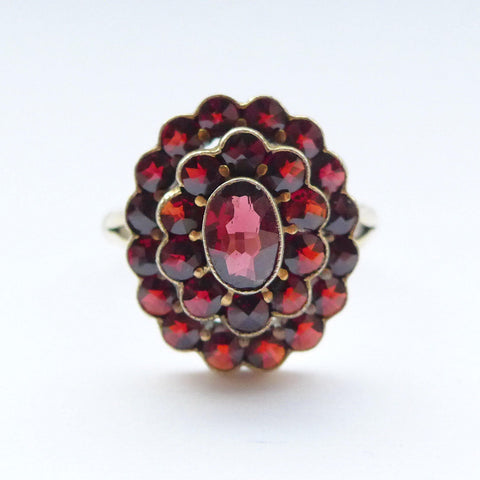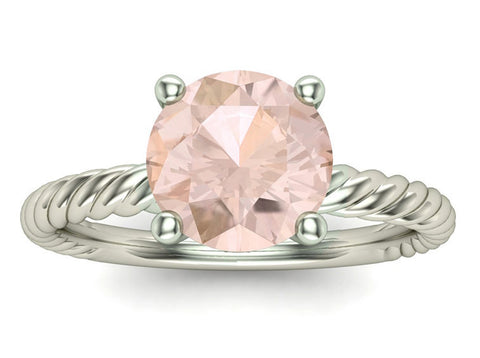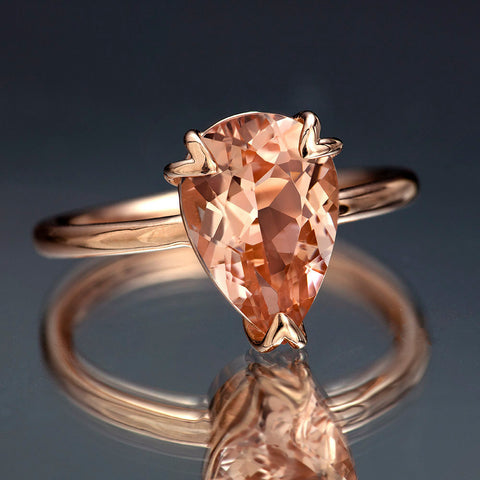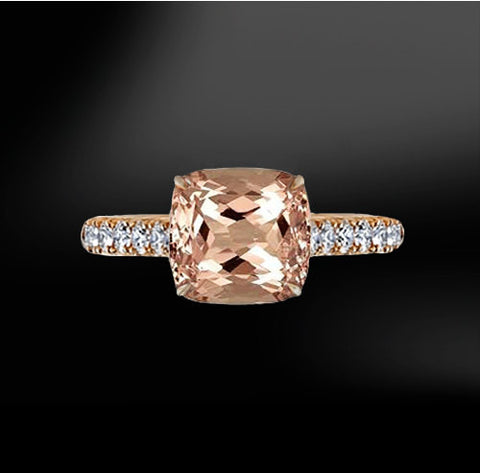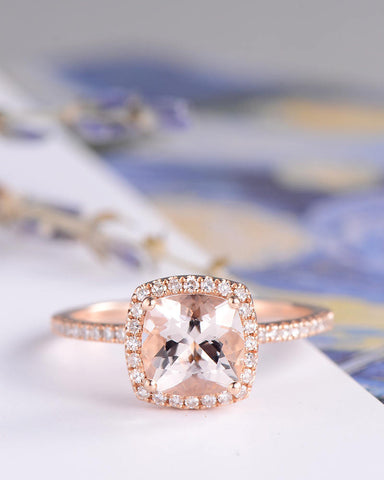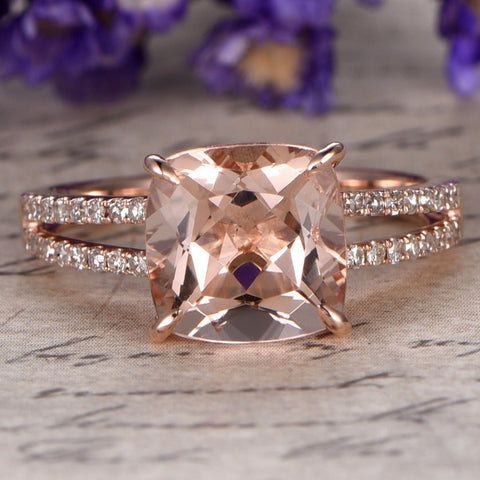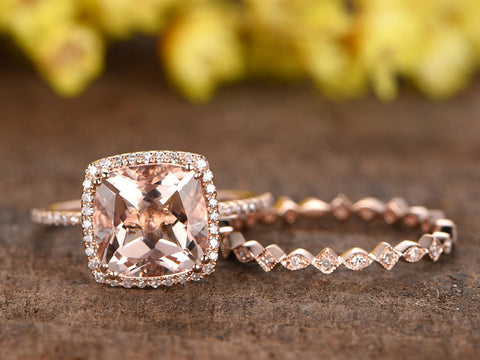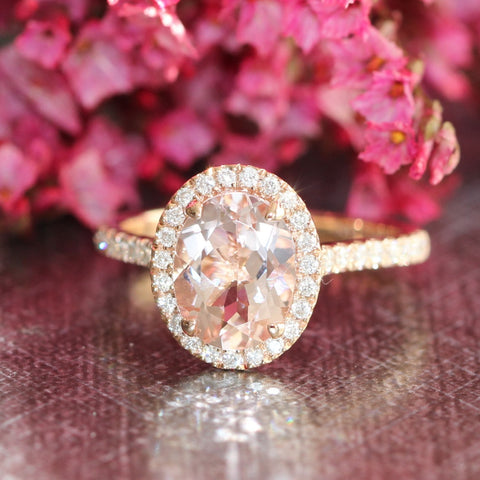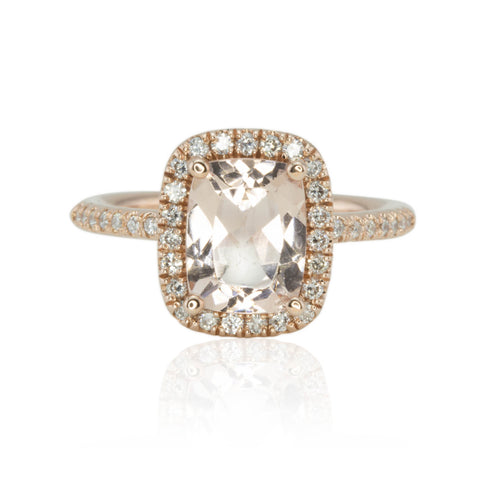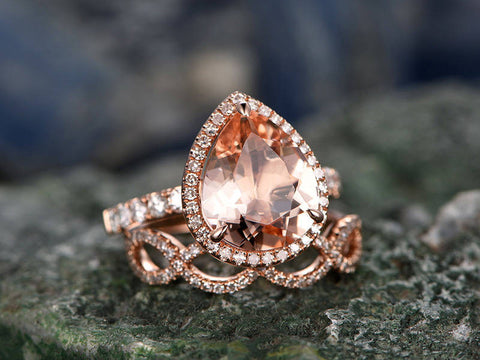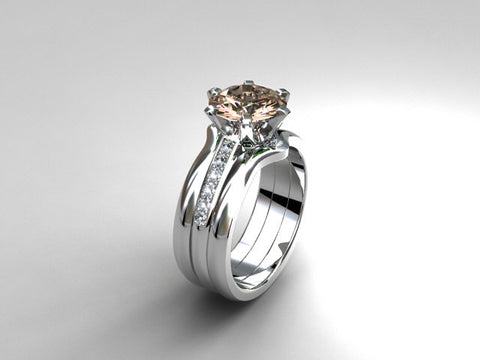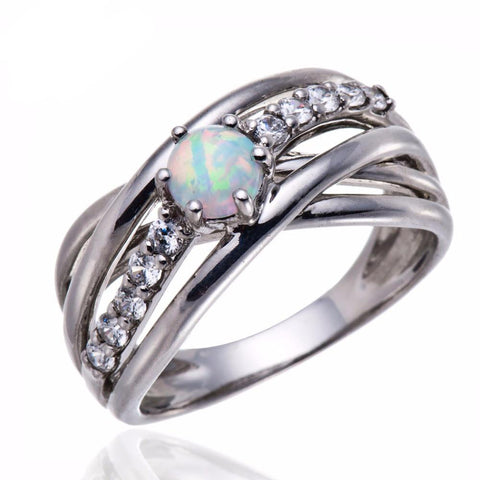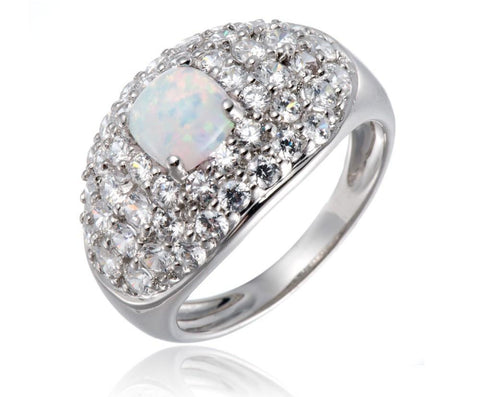The History of the Garnet Gemstone
The word Garnet comes from the Latin word meaning pomegranate and has been used in jewellery and artwork for many thousands of years. Garnet rings have been found in ancient Egyptian, Greek and Roman ruins. Ancient Jewish text, the Talmud even believe that a garnet gemstone provided the only light on Noah’s ark!
In the late 1960’s the discovery of a bright green Grossular garnet in East Africa created waves in the jewellery industry. The green garnet was named “Tsavorite” by the infamous Tiffany’s jewellery firm. Then again in the 1980’s a fiery orange variety of spessartite garnet was discovered on the Angola-Namibian border. These radiant colours brought about a major development in bringing the garnet to the forefront of the exciting gemstones.

Identifying a Garnet
A Garnet can be identified by its occurrence in metamorphic rock, its hardness, refractive index, colour and cubic crystal structure. However, the quickest way to identify garnet is with the use of strong neodymium magnets. Garnet is attracted to neodymium magnets because it contains high concentrations of iron and/or manganese.
Garnet Characteristics
Types of Garnet
Almandine - also known as precious garnet, this type of garnet is a deep transparent red colour. Most of the garnet rings available are made with almandine.
Demantoid - a type of Andradite garnet, this type of gemstone comes in shades of green; demantoid also has an extremely high degree of brilliance that is often higher than that of a diamond.
Grossular - also known as hessonite, grossular garnet comes in various shades of green.
Mali Garnet - a cross between grossular and almandine, mali gemstones are in colours ranging from yellow, green-yellow, yellow-brown, and brown.
Pyrope - this type of garnet comes in shades of red ranging from deep blood red to violet red, black-red, a rare blue color, and some colour changing varieties.
Rhodolite - a violet red variety of Pyrope garnet, treasured for its soft unique colour.
Spessartine - a type of garnet which comes in colours ranging from orange yellow to violet red.
Tsavorite - a highly valuable form of grossular garnet which comes in a distinctive green shade.
Uvarovite - a very rare and valuable bright green garnet.
Colours of the Garnet
Garnet is available in a plethora of colours, such as yellow, orange, peach, green, red, purple, blue, brown and pink. Blue being the rarest and red the most common occurring colour. Garnets also exhibit colour changing qualities depending on whether they are viewed in incandescent or natural light. The rarest colour change garnet appears blue in daylight, and changes to purplish-red under torch light. Other colour change garnets are green, beige, brown or grey in daylight, and change to reddish or purplish-pink under incandescent light. The most important quality factor is the colour of a Garnet.
Clarity and luster
Garnet have a glasslike and clear luster. The rare green Demantoid garnet has a high refractive index and is prized for its brilliance and diamond-like luster. Garnets are generally clean stones; however, almandine garnets sometimes have asbestos fibre inclusions. These inclusions cause a star effect, which is treasured due to its rarity. Additionally, some orange garnet, such as spessartite and hessonite tends to exhibit eye-visible inclusions. The Russian demantoid garnet is highly for its distinctive, horsetail-like inclusions.
Cut, shape and treatment
Garnets are extremely adaptable and can be cut into any fashion and shape. Red garnet tends to be cut into standard shapes, whereas valuable garnets that are not often found in large sizes, such as tsavorite and demantoid, are cut into shapes that retain the most carat weight. A Garnet is also never artificially enhanced in any way.
Interesting facts about the Garnet
If you are lucky enough to be born in January then Garnet is your birthstone. Garnet gemstones have the greatest variety of colour than any other mineral and as their chemical composition varies, the atomic bonds in some species are stronger than others. Garnets can be found all over the work, from Greece, India, Russia and even Tanzania! Garnet gems are also extremely durable, remnants for garnet jewellery can even be traced back to the Bronze ages. Legend has it that the Garnet can bring peace, prosperity and good health to the home. It is sometimes even referred to as the “Gem of Faith” and that to those that wear it and do good, more good will come.
The Garnet was also used as a talisman for protection both by warriors going into battel and to those who wanted to ward off pestilence and plague. Some ancient healers and wise men even placed garnets in wounds and praised it’s healing powers. The garnet is also meant to symbolise deep and lasting friendships, hence why a garnet is also given to someone whose friendship is deeply valued.
The Victorians are well known for making the Garnet popular and some of the loveliest garnet jewellery from the Victorian era mimics it’s pomegranate namesake, with clusters of tiny red gems forming a larger statement piece. In today’s modern times the Garnet can be found in a range of jewellery pieces and styles, from stunning rings to unique earrings. Since the garnet comes in a variety of colours, there is sure to be a Garnet piece that will be perfect for you.
Garnet Engagement Rings
Although almost a dozen varieties of garnet exist, mainly almandine, rhodolite or the highly valued tsavorite garnet are used in engagement rings. Engagement rings are naturally available in a lovely selection of delightful colours. As the Garnet is pretty strong it is perfect for every day wear like engagement and wedding rings. The gemstone is also quite affordable and beautiful to look at. A Garnet engagement rings is a perfect alternative to common ruby or diamond rings if you are looking for something that is a bit more unique.
The Garnet symbolises fire, passion and love which is very appropriate for an engagement ring! This year’s most popular garnet shapes for engagement rings include the cushion and emerald cut garnet gemstones. With so many different types and styles of garnet engagement rings and wedding bands available, couples should take their time to learn about the varieties that appeal to them to be sure they are buying an authentic stone for the right price.
Ring buying tips
Whether you are celebrating a 2nd wedding anniversary, after a bit of a different engagement ring or to recognise the wearer’s January birthday, a Garnet ring will be perfect for any occasion! Always ensure that you purchase your ring from a reputable jeweller that is licensed. Look how the gem reacts under light, both natural and synthetic and check for an intense, saturated colour to ensure that your gem is excellent quality. Remember that Garnets commonly come in a wide spectrum of reds, but can also be green, pink, colourless or blue. The price of the piece will likely increase the rare the colour, like blue or green.
Garnets can also be judged along some of the parameters as diamonds in terms of clarity and cut affecting the beauty and value of the stone. Some Garnets like the Dermatoid and Hessonite garnets have inclusions that are part of the beauty of the overall stone. So you may discover that you like the unique look these inclusion bring to the piece. Remember to try and find a cut that spreads light evenly over the surface of the gemstone as this will help to bring out the overall beauty and colour of the garnet.
Look out for garnets that have been colour dyed or heat treated to improve their colour as these types of treatments on garnets are highly unstable and dramatically decrease the value of the stones. To ensure that you are purchasing a quality garnet with excellent properties, stick with reputable jewellers and boutiques who specialise in Garnet jewellery.
And remember that because garnet has been such a popular jewellery gemstone for hundreds of years, there are plenty of antique, estate and vintage garnet rings available. They should however always come with a certificate of authentication and/or an appraisal.
Due to the Garnet’s durability and richness of colour, you will not only have a stunning piece of jewellery but also an investment that will stand the test of time.
Caring for your Garnet ring
Depending on the type of garnet stone you have, will depend on the hardness of your gem and how easily it is susceptible to scratches. Although, Garnets have fair to good toughness, making them durable enough for all jewellery styles as long as they are treated with proper care. To care for your Garnet properly follow these handy tips:
Garnets should never be subjected to any hard blows or rough wear. Maybe take your jewellery off while doing the gardening!
Garnets are stable to light and chemicals, but they can however get damaged by hydrofluoric acid.
Cleaning your gem with warm soapy water is always the safest. Ultrasonic cleaners are usually safe expect for stones that have fractures and steam is not recommended.
If your garnet is fractured it can rarely be treated by fracture filling and should only be cleaned using warm soapy water.
Caring for your Garnet properly is highly important ensuring that your gem remains in excellent condition
from
https://www.mypearls.co.uk/blogs/news/36-beautiful-garnet-rings



